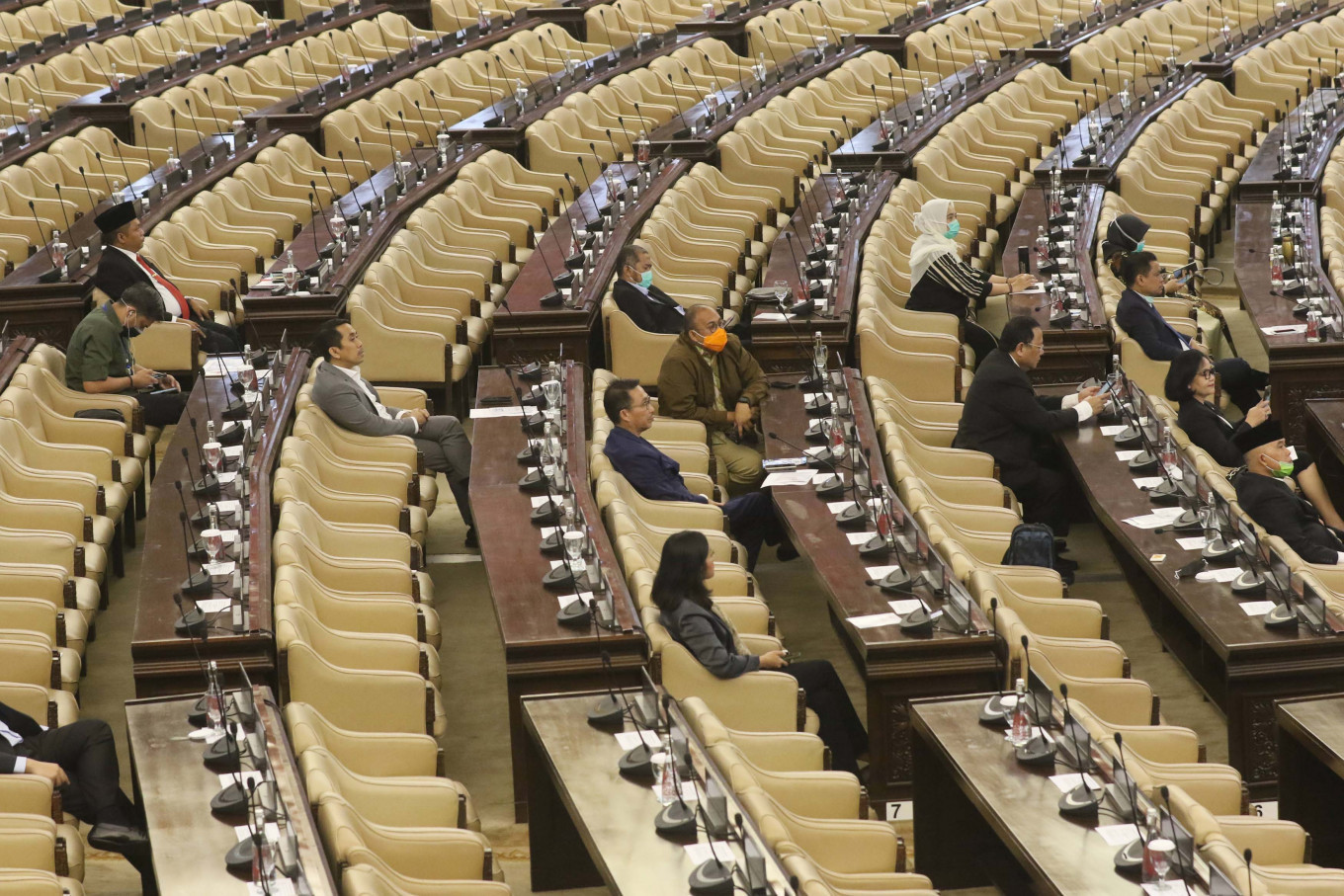Popular Reads
Top Results
Can't find what you're looking for?
View all search resultsPopular Reads
Top Results
Can't find what you're looking for?
View all search resultsThe higher the better?
Nothing is wrong with such a high threshold, as many developed democracies adopt it to strengthen their parliaments.
Change text size
Gift Premium Articles
to Anyone
F
our years ago the Golkar Party and NasDem Party pushed for a drastic rise in the parliamentary threshold for the 2019 elections, namely to between 7 and 10 percent from 3.5 percent at that time. After a grueling debate, the House of Representatives agreed to increase the threshold to 4 percent.
Now, the same parties are proposing that the threshold be set at 7 percent in the 2024 legislative election. Golkar politicians involved in the plan to amend Elections Law No. 7/2017 said a higher threshold would lead to more efficient political decision-making.
The 2019 election saw nine parties survive the cut, against 10 in 2014, thanks to the new threshold. If the 7 percent mark is approved, perhaps only five of the parties that are now represented in the House will continue to exercise the checks and balances vis-à-vis the government.
Following sweeping political reform in 1998, Indonesia has been taking strides to consolidate democracy. One of its experiments of democracy is a gradual increase in the parliamentary threshold, which is expected to simplify the political party system.
Nothing is wrong with such a high threshold, as many developed democracies adopt it to strengthen their parliaments. The Constitutional Court upheld the mechanism several times, saying it neither violates the Constitution nor restricts people’s political aspirations.
The Susilo Bambang Yudhoyono administration once laid out a roadmap for political party simplification through the gradual increase in the parliamentary threshold in every election. But challenges from minor and middle-size parties prevented the plan from being realized, resulting in slow progress in the plan to simplify the country’s political party system.
Resistance to the 7 percent parliamentary threshold also comes from minor and medium-size parties, including Yudhoyono’s Democratic Party. The ruling Indonesian Democratic Party of Struggle has asked for a 5 percent threshold but does not oppose something higher.
Certainly, a fewer number of parties in the House will facilitate — rather than complicate — decision-making. As we have seen in practice, a low threshold has forced major parties to bargain the backing of small parties to accelerate the legislative process in the House.
No doubt, Indonesia’s democracy must progress. A higher parliamentary threshold is akin to a selection by nature of political parties that really articulate people’s aspirations. Although vote-buying is difficult to eradicate, it is hard to imagine that certain political parties possess extraordinary financial might to bribe millions of voters to win a ticket to the House. Rather, the life and death of the parties depend much on their relationship with voters.
In short, a higher parliamentary threshold will force political parties to reform — or else voters will desert them and send them packing from national politics.
Raising the bar high for political parties aspiring to enter the House is just logical because they will get involved in national policy-making, in which the fate of 270 million of people or more will be at stake. Only parties with strong legitimacy, i.e. considerable popular support, deserve the trust to define the course of the nation’s path to well-being.










